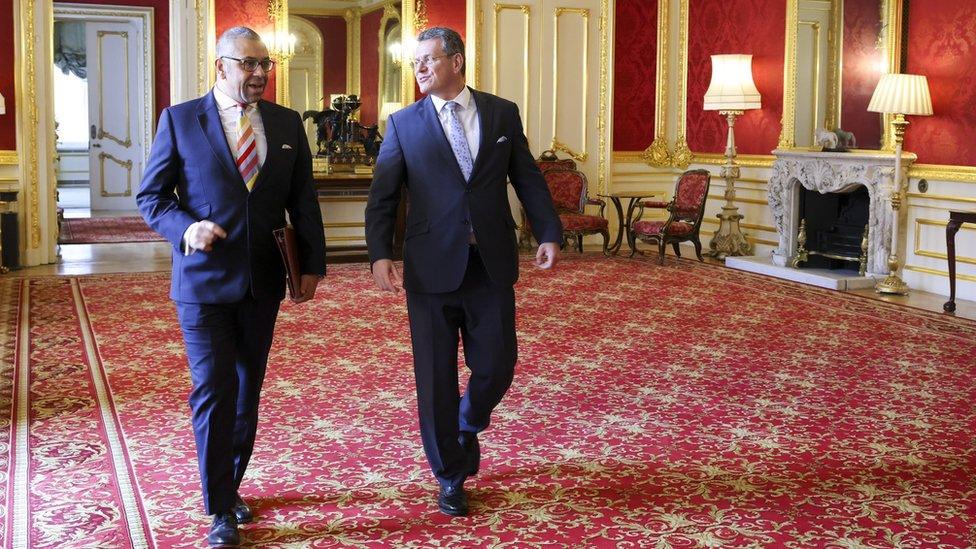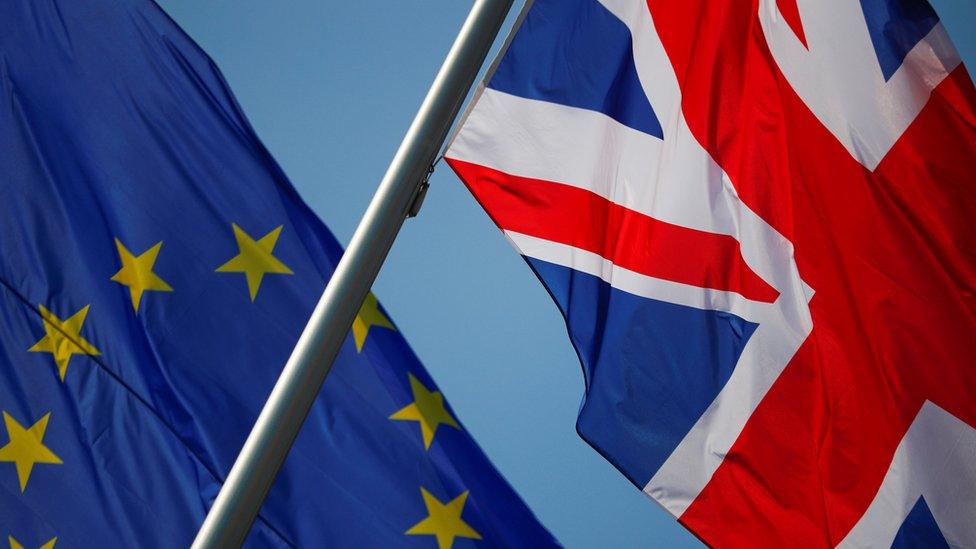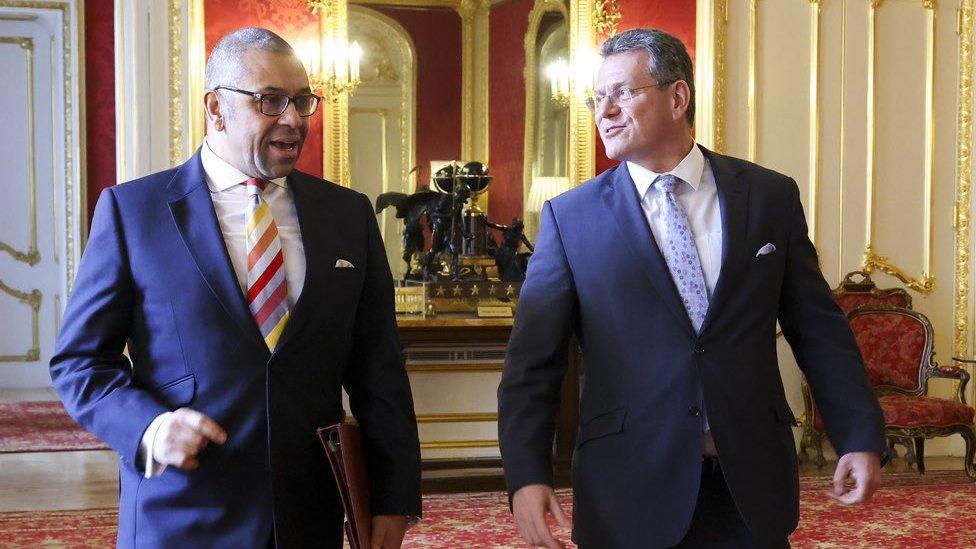NI Protocol: No breakthrough on deal after UK-EU talks
- Published
- comments

James Cleverly and Maros Šefčovič met in London last week
The UK and EU have issued another joint statement on the Northern Ireland protocol but there has been no breakthrough in negotiations.
The two sides said "scoping work" for potential solutions should continue in "a constructive and collaborative spirit".
There had been speculation they were on the brink of producing a political declaration or "framework agreement".
Last week, agreement was reached on the issue of sharing trade data.
There had been hopes it could lead to rapid progress towards a deal on easing the movement of goods from Great Britain to Northern Ireland.
The statement on Monday came after a meeting between EU chief negotiator Maros Šefčovič, UK Foreign Secretary James Cleverly and Northern Ireland Secretary Chris Heaton-Harris.
It said: "The two sides discussed the range of existing challenges over the last two years and the need to find solutions together to tackle comprehensively the real-life concerns of all communities in Northern Ireland and protect both Northern Ireland's place in the UK's internal market and the integrity of the EU's single market."
On Monday, shadow Northern Ireland secretary Peter Kyle warned of profound consequences if the UK and EU fail to reach a deal on the protocol.
Mr Kyle was speaking on a visit to Londonderry with Labour's shadow foreign secretary David Lammy and the party's Brexit spokesperson in the House of Lords, Baroness Chapman.
He said both the UK and EU needed to make use of the small "window of opportunity" to get a deal on the protocol over the line.
Last week's trade data deal was said by the UK and EU to be "a critical prerequisite to building trust and providing assurance, and provided a new basis for EU-UK discussions".
After the meeting last week, Mr Cleverly tweeted that he and Mr Šefčovič shared the same focus - "the best outcome for Northern Ireland".
Northern Ireland has not had a fully-functioning government since February 2021, when the Democratic Unionist Party withdrew from the NI Executive as part of its ongoing protest against the protocol.

What is the Northern Ireland Protocol?
The protocol is a part of the UK-EU Brexit deal that keeps Northern Ireland aligned with some EU trade rules.
It keeps Northern Ireland in the EU's single market for goods, avoiding the need for a hard border with the Irish Republic after Brexit.
However, it also creates a new trade border between Northern Ireland and the rest of the UK, something the EU accepts is causing difficulties for many businesses.
Some unionists say it is also undermining Northern Ireland's place in the UK.
The UK says the protocol is not working and plans to override most of the agreement if the EU does not agree to changes.

One of the changes the UK has proposed is a green lane/red lane system for goods entering Northern Ireland from Great Britain, with trusted traders using a green lane for goods destined only for Northern Ireland.
The EU has accepted that goods that are staying in Northern Ireland should be subject to a lighter touch.
The UK said it has built a system which can do this by drawing together five different databases which deal with things like customs declarations, safety and security declarations and ferry manifests.
The system was demonstrated to EU officials last summer and has been working in pilot form in recent months.
The EU's acceptance that the system works is significant, but it does not mean that a fresh agreement on the movement of goods is inevitable.
A previous stumbling block has been how much information companies need to provide when shipping goods from Great Britain to Northern Ireland, which can be a bigger problem than physical checks.
During the Christmas period the UK said that it will soon bring forward legislation which would lead to the building of new facilities at Northern Ireland's ports to enforce the protocol.
The government said this would be necessary for red lane checks but the lack of proper border controls posts at the ports has long been an EU bugbear.
This article was amended on 1 February 2023 for clarity: While there had been no breakthrough in EU-UK negotiations, this was not mentioned in the joint statement.
Related topics
- Published15 January 2023

- Published9 January 2023

- Published2 February 2024
